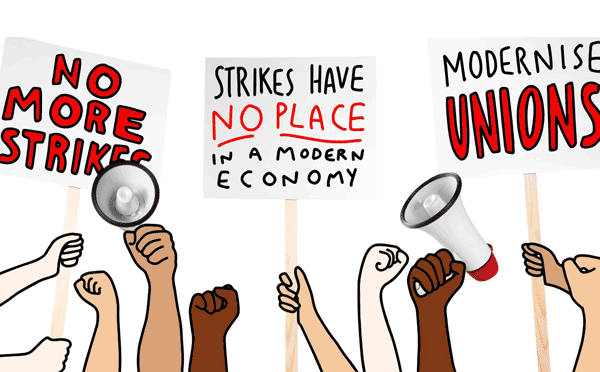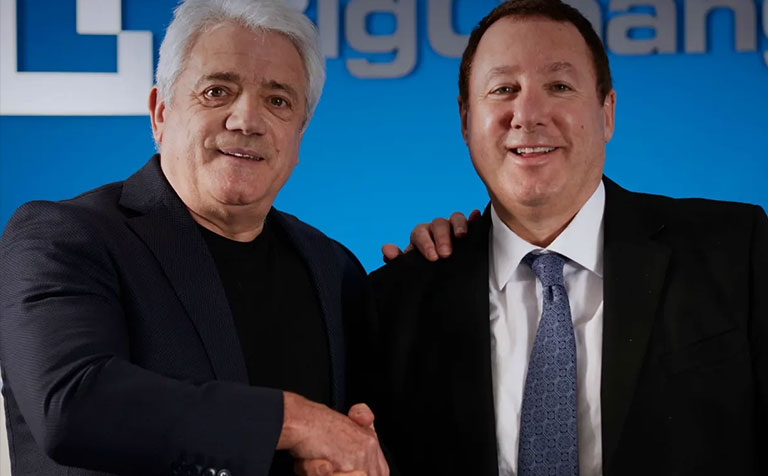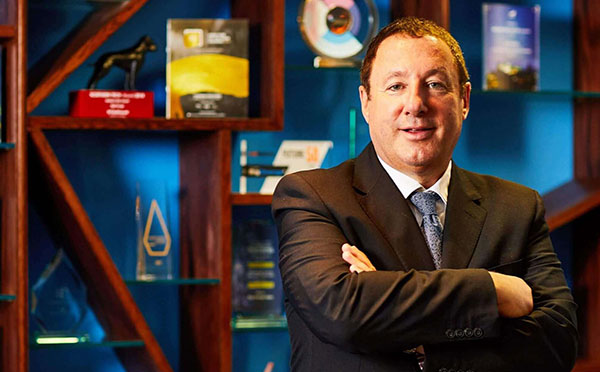Strikes have no place in a modern economy

The recent train strikes are causing absolute chaos across the UK. I believe it’s time to radically rethink the role of unions – and to accept that striking has had its day.
The three-day strike, which will have caused six days of disruption across the UK, saw tens of thousands of Network Rail staff down tools. Only half of Britain’s rail network is operational, running a skeleton service. The dispute centred over pay and redundancy packages – Network Rail wants to cut between 1,500 and 2,000 frontline jobs.
I hate to state the obvious, but Network Rail is still reeling from the pandemic when almost nobody used its services and passenger numbers plummeted. It only survived because of enormous government handouts, which were required to keep the freight trains running, carrying food and medication across the UK.
The Covid-19 crisis took the whole world by surprise – no one could have planned for it. Look at the international travel sector, which lost $6 trillion over two years. The businesses that were affected by the pandemic can’t just continue with “business as usual”.
There have to be cuts and consequences. Passenger numbers remain muted and are likely to remain so in this new world of “hybrid working”. No amount of striking can change the facts: for the organisation to survive, it has to evolve.
Unions must change
It is time for the role of unions, therefore, to change. So often, strikes achieve nothing – they simply disrupt services for the blameless public.
More effort should be made by the unions to foster a meaningful dialogue between staff and company bosses.
Strikes have begun to feel like a kneejerk reaction when demands aren’t met, even when the organisation is unable to meet those demands.
Yes, inflation is rising, and times are hard, but they are hard for many people across the country; the average salary at Network Rail stands at £45,000, compared to an average UK salary of just £26,000.
Network Rail’s CEO, Andrew Haines, makes £585,000 a year, which is a sticking point for many of the workers. I understand why this is a hard number to see when you’re fighting for a better redundancy package. But this is the nature of business: the top executives earn more because they are responsible for the strategy and direction of the business.
At BigChange, the strike made a significant impact. Most notably on our summer soiree, which we spent months planning and was to bring together everyone from across the business for the celebrations. People struggled to get to the party. It might sound trivial to some, but it was heart-breaking.
Boosting employee engagement is essential
I believe that unions are a relic from the past. They should be replaced with an employee engagement committee, which is in regular dialogue with the senior leadership team.
If this kind of system were in place at Network Rail, there would be no call for strikes because communication would be ongoing – there would be no surprises – and every single person in the organisation would have a voice.
This is not some utopian ideal. It’s a system we already have in place at BigChange. We call it the Big Voice. I set up the department a few years ago, and Joshua Levin took the helm a little over a year ago, and now chairs the committee.
The aim of the Big Voice is simple: to drive positive change across the business. At least one representative from each team meets the Big Voice committee twice a month via Teams. Everyone in the team knows to pass on ideas or concerns to their rep, and then these are all communicated at the first meeting of the month.
At the second monthly meeting, the proposed changes or ideas are put to the CEO Richard Warley and COO Jo Godsmark, and we have found this model works brilliantly.
Last year, we did a massive rethink of our benefits package as a result of a Big Voice proposal, improving sick pay, parental leave, and more.
The final package is one that both benefits all our colleagues and allows the business to continue growing: win/win.
I fear that if a union had been involved, we would never have reached such a sensible consensus.
Employers respect their workers
In this day and age, most employers respect their workers. Most organisations have an HR People team and there are opportunities to sit down with managers to discuss grievances or new ways of working.
We’ve come a long way from the days when people were sent down the mine by autocratic leaders who ignored health and safety concerns.
The world of work has also changed dramatically over the last 50 years. The “job for life” is dead, and people now move companies every five years, on average. Companies that do not listen to their staff will ultimately lose their top talent.
It’s time to bring unions into the modern era, and update the way that they engage with organisations because the system clearly isn’t working in its current form.



